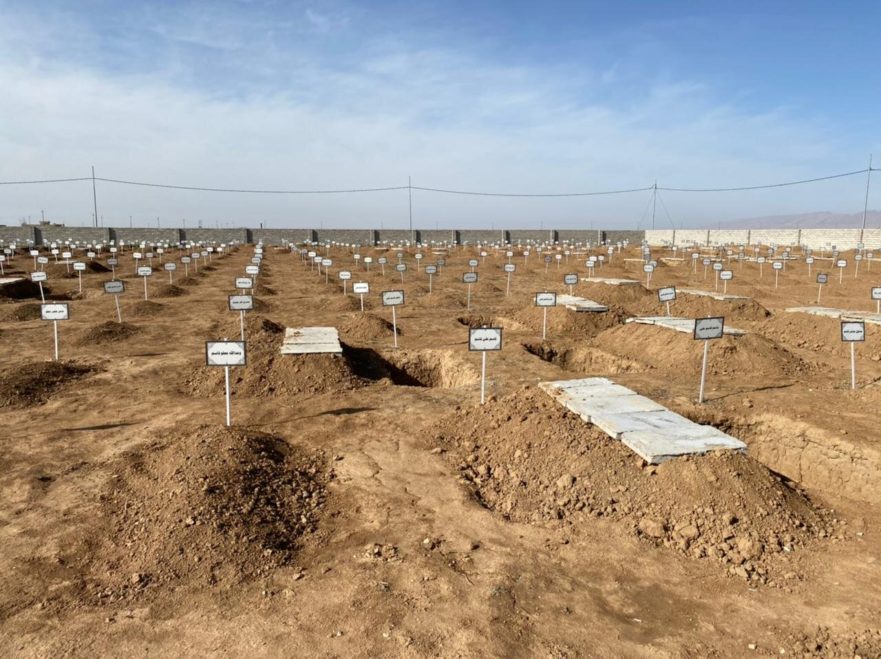February 16, 2021
Yazidis have a long history of religious persecution. The most recent horrors happened in August of 2014 when the Islamic State (ISIS) began an organized campaign against them that involved ethnic cleansing in the form of mass executions, enslavement, forced conversions and recruitment of child soldiers, and sexual violence. These crimes resulted in the massacre of thousands of Yazidis and the forcible displacement of an estimated 400,000 Yazidis to Internally Displaced Person (IDP) camps in Northern Iraq. The United Nations and other national and international bodies have recognized these atrocities as crimes against humanity, war crimes and genocide.
Investigations underway by the UN are an important step, but they have not yet led to an international trial seeking justice and accountability for the ISIS perpetrators.
Six years later, 2,800 women and children are missing and the majority of Yazidis remain in IDP camps. Approximately 150,000 Yazidis who have returned to the region of Sinjar are struggling to rebuild their lives. They seek basic services, restoration of infrastructure in Sinjar, improvements to the local governance and security in Sinjar and protection of Yazidis in Syria. And with thousands of Yazidis dumped into mass graves after being massacred by ISIS, families still have not been able to bury their relatives.
An exhumation process was started in March 2019 and an identification process of those remains was conducted by the Iraqi Medico-Legal Department of the Martyrs Foundation, with the assistance of the UN Investigative Team for Accountability of Da’esh/ISIL (UNITAD) and the International Commission on Missing Persons (ICMP).
“For years, Yazidi survivors have told me of the pain and indignity of not knowing the whereabouts of their loved ones,” said Amal Clooney, attorney for many Yazidi survivors and Yazda. “Many feel that they cannot go home or move forward with their lives so long as their loved ones have not had a proper burial. ”
Thanks to Yazda, a global nonprofit established in the aftermath of the Yazidi genocide in 2014, and countless brave survivors, some families can start the healing process. The remains of 104 Yazidi victims of ISIS were returned to families and on February 6th, 2021 they were buried in a dignified ceremony in Kocho, Sinjar.
Nadia Murad, a Nobel Peace Prize laureate and the U.N. Goodwill Ambassador for the Dignity of Survivors of Human Trafficking, was instrumental in advocating for the Yazidi community. She recently wrote: “Among the deceased are my friends, neighbors, and two of my brothers. I miss my brothers every day. I am glad to be able to honor them with a proper burial, but my heart remains broken for the thousands of Yazidi families whose loved ones remain in mass graves. Living with this reality is a burden that weighs heavily on the Yazidi community. The longer we wait for exhumations and honorable burials, the more our communal trauma is exacerbated and our dignity denied.”
“There is an acute need to identify the rest of the remains that have been exhumed, which include the body of my beloved mother. There are dozens of mass graves in Sinjar that still await exhumation. Exhumations and burials for all Yazidi victims of genocide should be expedited out of respect for the deceased and survivors.”
RECOMMENDED READING
The Last Girl: My Story of Captivity, and My Fight Against the Islamic State, published by Tim Duggan Books
Nadia’s story—as a witness to the Islamic State’s brutality, a survivor of rape, a refugee, a Yazidi—has forced the world to pay attention to an ongoing genocide. It is a call to action, a testament to the human will to survive, and a love letter to a lost country, a fragile community, and a family torn apart by war.

